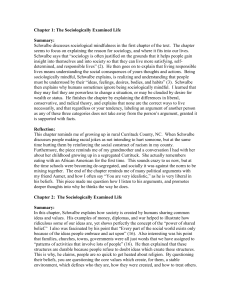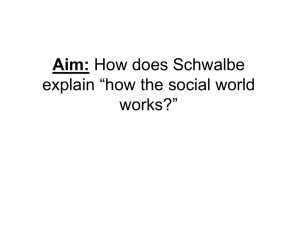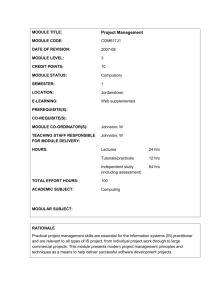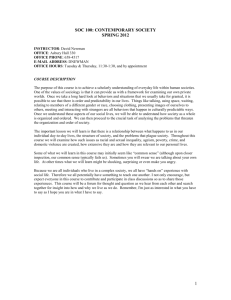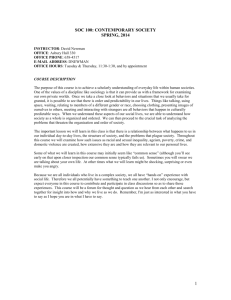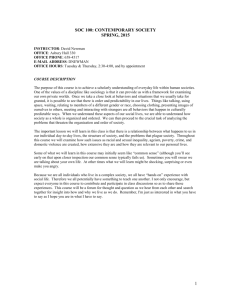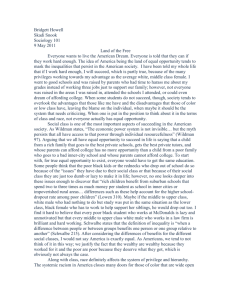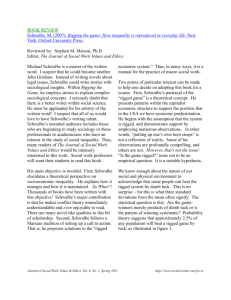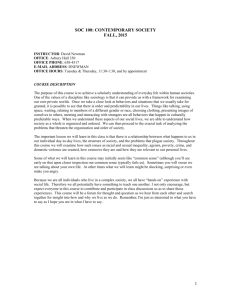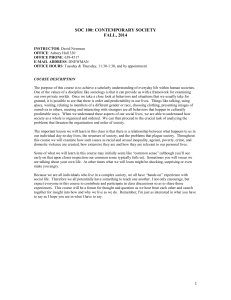Chapter 1: The Sociologically Examined Life
advertisement
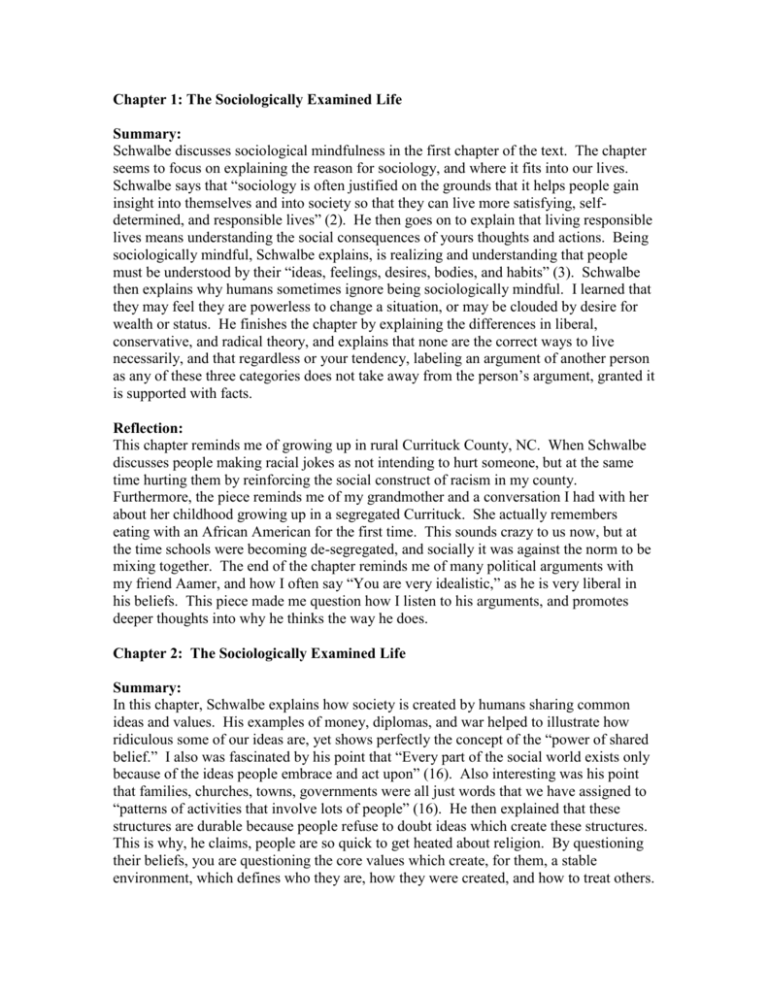
Chapter 1: The Sociologically Examined Life Summary: Schwalbe discusses sociological mindfulness in the first chapter of the text. The chapter seems to focus on explaining the reason for sociology, and where it fits into our lives. Schwalbe says that “sociology is often justified on the grounds that it helps people gain insight into themselves and into society so that they can live more satisfying, selfdetermined, and responsible lives” (2). He then goes on to explain that living responsible lives means understanding the social consequences of yours thoughts and actions. Being sociologically mindful, Schwalbe explains, is realizing and understanding that people must be understood by their “ideas, feelings, desires, bodies, and habits” (3). Schwalbe then explains why humans sometimes ignore being sociologically mindful. I learned that they may feel they are powerless to change a situation, or may be clouded by desire for wealth or status. He finishes the chapter by explaining the differences in liberal, conservative, and radical theory, and explains that none are the correct ways to live necessarily, and that regardless or your tendency, labeling an argument of another person as any of these three categories does not take away from the person’s argument, granted it is supported with facts. Reflection: This chapter reminds me of growing up in rural Currituck County, NC. When Schwalbe discusses people making racial jokes as not intending to hurt someone, but at the same time hurting them by reinforcing the social construct of racism in my county. Furthermore, the piece reminds me of my grandmother and a conversation I had with her about her childhood growing up in a segregated Currituck. She actually remembers eating with an African American for the first time. This sounds crazy to us now, but at the time schools were becoming de-segregated, and socially it was against the norm to be mixing together. The end of the chapter reminds me of many political arguments with my friend Aamer, and how I often say “You are very idealistic,” as he is very liberal in his beliefs. This piece made me question how I listen to his arguments, and promotes deeper thoughts into why he thinks the way he does. Chapter 2: The Sociologically Examined Life Summary: In this chapter, Schwalbe explains how society is created by humans sharing common ideas and values. His examples of money, diplomas, and war helped to illustrate how ridiculous some of our ideas are, yet shows perfectly the concept of the “power of shared belief.” I also was fascinated by his point that “Every part of the social world exists only because of the ideas people embrace and act upon” (16). Also interesting was his point that families, churches, towns, governments were all just words that we have assigned to “patterns of activities that involve lots of people” (16). He then explained that these structures are durable because people refuse to doubt ideas which create these structures. This is why, he claims, people are so quick to get heated about religion. By questioning their beliefs, you are questioning the core values which create, for them, a stable environment, which defines who they are, how they were created, and how to treat others. Schwalbe also goes on to discuss habits, how they are formed, and how they are sometimes folded into the culture of society. His argument about brushing your teeth was a great illustration of this point. Lastly, he discusses how people are masked in discussions by reification, which he defines as the “tendency to see the humanly made world as having a will and force of its own, apart from human beings” (21). He explains that by creating this abstraction from humans, we often create an atmosphere where we feel powerless to control these reifications, although in reality they are all created and maintained by humans. Similarly, we discuss race in a similar way. Schwalbe explains that “it makes it hard to hold anyone accountable for the good or bad results arising from their actions” (22). Reflection: This chapter truly opened my eyes to why people are so protective of their beliefs. I consider myself atheist, and so when I have discussions about religion, I do not get worked up about it. This chapter explains why when I do bring up points about religion, people are often quick to defend themselves, and often find it hard to see my point of view. Furthermore, the idea that we are masking our actions through reification is also quite interesting. I have never thought about how we use “technology” and “government” and “social structure” to mask more than language. But it is true, as I think about the war in Iraq. I feel better saying “our government invaded Iraq,” yet feel bad when I think about the fact that we as Americans control of government. It is a constructed word that I am sure a lot of us use, without even realizing the comfort in abstracting our involvement in these kind of situations.
